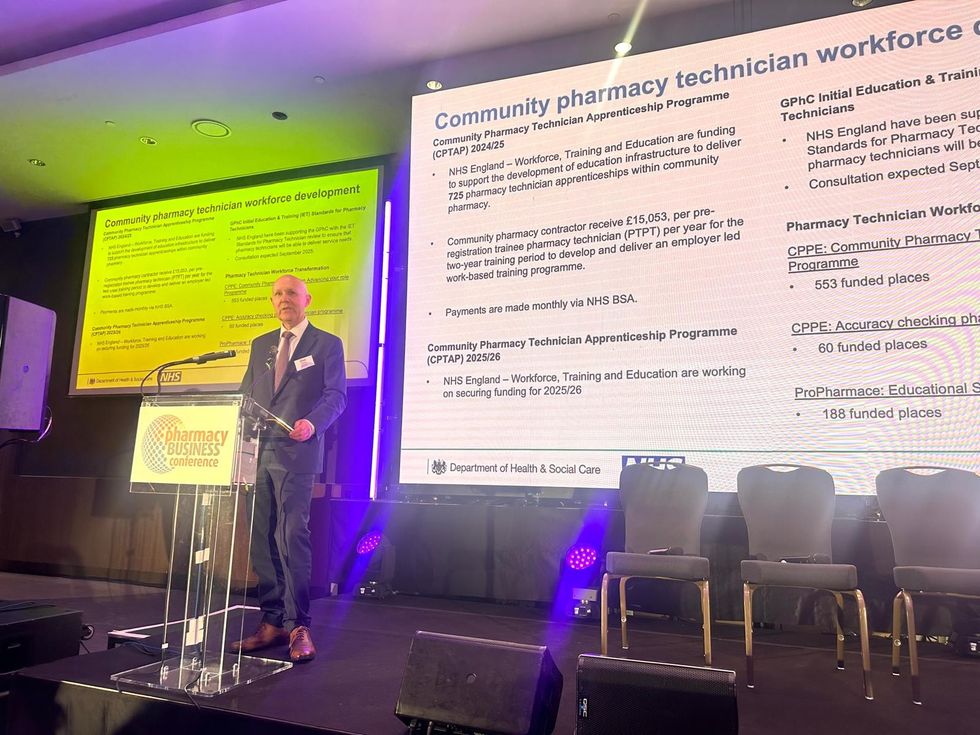By Elena Markaryan
Irritable bowel syndrome (IBS) is a common condition, affecting around one in every ten adults. It can cause unpleasant symptoms including abdominal pain, bloating and bowel symptoms. Patients can be constipated (IBS-C), or suffer diarrhoea (IBS-D), or suffer from a mix of both.
It is estimated that approximately one-third of patients with IBS experience diarrhoea as their predominant bowel habit, causing a wide range of unpleasant symptoms, which severely impact their professional and personal lives.
Linked to this, there are approximately 17 million cases of diarrhoea annually in the UK, resulting in a million GP visits which is a significant burden on the NHS. There is an unmet need to reduce duration of symptoms and numbers of GP visits and A&E attendance.
Causes and treatment
Symptoms of IBS can include abdominal pain and cramps, diarrhoea, constipation, alternating constipation and diarrhoea, changes in bowel movements, gas and bloating, food Intolerance – the most common triggers are large meals, spicy food, bread, excessive fibre – especially insoluble fibre – chocolate, alcohol, caffeine, fructose, sorbitol, fizzy drinks, fried and fatty foods.
Prof Yan Yiannakou, Professor of Neurogastroenterology at County Durham and Darlington NHS Foundation Trust, gives some useful insight into the condition: “A proportion of patients (perhaps 10 per cent) with acute infectious gastroenteritis can go on to develop chronic diarrhoea with abdominal pain. The diagnosis usually turns out to be diarrhoea predominant irritable bowel syndrome (IBS-D). It is thought that the cause of this (going from gastroenteritis to IBS-D) might be related to an activated immune system.
“The immune system in the gut becomes activated to fight the infection and should settle down after the infection has cleared. However, in some individuals this doesn’t happen and increased immune cells are present in the lining of the gut. These immune cells produce chemicals which can irritate the gut and cause diarrhoea, or might alter the balance of the bacteria which normally live in the bowel (microbiome). These bacteria are involved in producing the bowel motion and an alteration in this can make the motion too loose (or too hard).”
A bad bout of food poisoning can cause bacterial overgrowth in the small intestine leading to IBS, although the exact cause of IBS is unknown. IBS has been linked to food passing through the gut too slowly or rapidly, stress impacting on the gut, a family history of IBS, or oversensitive nerves in the gut. Some of the treatment options can include oral intestinal adsorbents and loperamide for diarrhoea, Ispaghula Husk for constipation, Hyoscine butyl bromide for cramping.
Advice for pharmacists
Those suffering with IBS can also experience acid reflux. Gastroesophageal reflux disease, or GERD, causes acid reflux, commonly referred to as heartburn and some patients can be unlucky enough to be suffering from both these conditions. Proton pump inhibitors (PPI’s) are regularly prescribed to lower stomach acid for those suffering with indigestion and heartburn and acid reflux.
Pharmacist Daniel Brash comments: “Most patients won’t be aware of the fact that PPIs (e.g. omeprazole, which is very commonly used) alter the gut flora and are associated with increased risk of infections such as gastroenteritis as a result.”
Many people with IBS suffer with chronic diarrhoea. While anti-diarrhoea medication slows down the frequency of bowel movements, the harmful substances that contribute to IBS symptoms remain in the digestive tract. To effectively alleviate the symptoms of IBS related diarrhoea, it’s useful to stock oral intestinal adsorbents, which bind bacterial toxins, immune proteins, fat molecules and bile acids which may contribute to IBS. These substances are then removed from the body with the stool, effectively alleviating symptoms of IBS flare-ups, and reducing stool frequency and duration of diarrhoea. A 20-day treatment course is recommended.
Pharmacy advice for patients
- Try to eat at about the same time each day to help regulate bowel function.
- Exercise regularly
- Try to avoid your food triggers for IBS.
- Reduce stress as much as possible, as this can be a major trigger – it’s a well-researched contributor to IBS. There’s a strong link between the brain and gut, so think about strategies to keep flare-ups under control. If you feel anxious in the mornings as your symptoms are worse, then make sure your morning routine includes plenty of time to go to the toilet.
- Diet and lifestyle changes can go a long way to minimise IBS flare-ups, but if sufferers are finding that these changes are not working they can find themselves turning to multiple medications – which often come with unwanted side effects. Instead, pharmacists can suggest innovative, drug-free oral intestinal adsorbents that are proven to alleviate chronic diarrhoea and abdominal pain associated with IBS.
Finally, it’s worth noting that customers may be unaware that IBS is not a dangerous condition, and usually, there is no link to developing further bowel problems. However, pharmacists need to be aware of any potential ‘reg flags’ and know when to refer.
Elena Markaryan is Director of Enteromed
This article also appears in the February issue of Pharmacy Business.














 Health Secretary Wes Streeting addresses Pharmacy Conference via video
Health Secretary Wes Streeting addresses Pharmacy Conference via video  David Webb, chief pharmaceutical officer of NHS England
David Webb, chief pharmaceutical officer of NHS England Shailesh Solanki, executive editor of Pharmacy Business
Shailesh Solanki, executive editor of Pharmacy Business L-R: Yasmin Karsan, Pritee Panchmatia and Fin McCaul
L-R: Yasmin Karsan, Pritee Panchmatia and Fin McCaul  L-R: Baba Akomolafe, Rachna Chhatralia, Patricia Tigenoah-Ojo and Raj Matharu
L-R: Baba Akomolafe, Rachna Chhatralia, Patricia Tigenoah-Ojo and Raj Matharu L- R: Nicola Stockmann, Robert Townsend, Atul Patel and Amerjit Singh
L- R: Nicola Stockmann, Robert Townsend, Atul Patel and Amerjit Singh Wole Ososami, lead pharmacist at Westbury Chemist
Wole Ososami, lead pharmacist at Westbury Chemist

